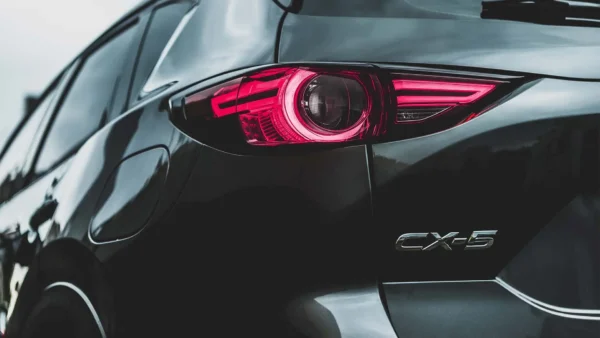If you’ve ever been involved in an accident where your car was declared a total write-off by your insurance provider, you know how overwhelming the situation can feel.
Suddenly finding yourself without a vehicle is inconvenient enough, but the added financial burden of searching for an affordable replacement can make matters even worse. And if your car holds sentimental value – whether it was a gift from a beloved family member or simply a vehicle you really enjoy driving –the loss can feel even more personal.
What many drivers don’t realize, however, is that even if your vehicle is a total write-off you may be able to keep it thanks to an option known as an owner-retained salvage agreement.
What is an owner-retained salvage agreement?
In an owner-retained salvage agreement, the policyholder keeps their vehicle and accepts a settlement based on the current market value of the vehicle, minus the salvage value,
explains Jesica Ryzynski, a claims specialist at Mitch Insurance. The other option would be a Total Loss Agreement, in which case the insurer retains the salvage and pays the policyholder the fair market value of their vehicle at the time of the loss.
So, if your vehicle is in an accident and is deemed to be a write-off by your insurance carrier, an owner-retained salvage agreement allows you to keep the car. The insurance company will first deduct the salvage value (which is the amount your insurer would have received for the car when sold as salvage) from the final payout you receive for your claim. For example, if the insurance company would have given you a payout of $10,000 for the vehicle but estimates it would have received $2,000 for selling the car as salvage, it will then offer you $8,000. You would then accept the reduced payment and retain full possession of the car.
When should you opt for an owner-retained salvage agreement?
This option can be particularly useful for a reliable car that your insurance company has determined is too expensive to fix. Getting possession of the vehicle and paying for repairs yourself (with proceeds from the payout) can be much more affordable than buying a new or used car.
When someone owns an older vehicle that has been well maintained and/or has low mileage, for example, they may have difficulty replacing it with a used car of the same quality,
says Ryzynski.
Inventory for used vehicles had been significantly reduced over the past couple of years. It’s not as easy as it once was to find a decent and affordable used car.
One of the fears I hear from people when they find out that their vehicle is a total loss, is the worry they have to take on a car payment. They are so anxious because it isn’t something they can afford. If those people can retain their vehicle and use the settlement to pay someone to repair it, it could be a lifesaver for them financially.
Used car prices rose significantly during the pandemic, with Auto Trader reporting that the average cost of a used car in Canada rose by nearly $9,000 between 2021 and 2023. While prices have started to decline, potential tariffs could reverse this trend and push prices for both used and new cars higher again. In this context, choosing an owner-retained salvage agreement after a total loss might offer a more cost-effective solution compared to buying another used car.

When should an owner-retained salvage agreement be avoided?
If a car is deemed a write-off, there’s the possibility that it may be “branded.” This means that the damage is so severe that the insurance company or Ministry of Transportation will add a label to the car’s records to identify the level of damage it has sustained.
Each province has their own standards of designation, but they usually fall into one of three categories:
- Irreparable: Damage is so extensive that the car is undrivable and can’t be fixed. It can only legally be used for parts or scrap.
- Salvage: The car can be repaired but must meet a set of officially mandated criteria (like getting inspected by an authorized facility) before it can be deemed safe and road worthy.
- Rebuilt: A car once listed as salvage that has been deemed drivable.
If your car is significantly damaged and labelled accordingly, it might not be a good idea to pursue an owner-retained salvage agreement as it may not be worth the time, expense and hassle of getting your vehicle repaired.
I always advise people to confirm that the vehicle won’t be branded, and I always follow up to double check with the adjuster myself,
says Ryzynski. If a vehicle is branded, depending on the brand, the policyholder may have difficulty insuring it again after the repairs are done.
It could also make the vehicle uninsurable. Even if a company will insure the car, there could be additional requirements and costs, such as a structural safety. In these cases, I don’t recommend the policyholder try to retain the vehicle.
Pros and cons of an owner-retained salvage agreement
Pros:
- Could save you considerable expense
- Avoid the hassle of looking for a replacement vehicle
- You get to keep a car you know and enjoy driving
Cons:
- There’s always a risk that repairs could cost significantly more than expected
- If your car is branded, you’ll have to go through a rigorous process to get it officially drivable
- Can be difficult to find an insurer even after repairs for a vehicle that was deemed a write-off
Is an owner-retained salvage agreement right for you?
In today’s uncertain times, keeping an older vehicle after a total loss may be a practical and economic solution, however, Ryzynski emphasizes that it may not be the right choice for all drivers.
In this current economical climate, if the policyholder can retain their older vehicle and avoid a car payment or the stress of trying to find a reliable used vehicle, it’s an option that should always be discussed,
she says.
It’s not going to be the best choice for everyone. Sometimes the parts needed to repair the vehicle are no longer available or it may be hard to find a mechanic equipped to do the work. It’s important that people confirm there will not be a brand on the vehicle, but also that the parts they need can be found and that someone can do the repairs.
Have questions about owner-retained salvage agreements? Call Mitch
Choosing to pursue an owner-retained salvage agreement requires careful consideration of your own unique financial situation, the condition of your car and the potential challenges involved in repairing it.
Want to learn more about owner-retained salvage agreements and discuss whether it might be an option for you? Give us a call at Mitch. Our team of insurance brokers is always here to help.
Looking for car insurance?
Speak with a Mitch Insurance broker today to get a quote on Ontario auto insurance.
Call now
1-800-731-2228








Hello Jessica ….Excellent article that you have written on “Owner Retained Salvage”..
I have a question for you if you would be so kind as to offer your input please….
My truck has been deemed a total loss because Mice have chewed the Harness…
They are willing to give me approx. $13,000.00 plus HST of approx, $1800.00 minus
$500 deductible..I also asked them for a buyout figure if i retain the vehicle…
They offered me the following….
approx. $13,000.00 minus salvage…$1800.00 minus $500 Deductible…
My question to you is why was the HST not included as it was in the first agreement…
I have not yet approached them yet but i will after i hear from you…
Is this standard procedure to not receive the tax or was it an honest omission….
I live in Hamilton. Ontario Canada…
Many Thanks for any info you can provide me with…
All the Best,,,,,John
Thanks for your comment, John. Claims settlements can differ depending on your policy details and how the payout is structured. With that in mind, your claims adjuster is the best person to ask for clarification about the HST and why it was included in one figure but not the other. They’ll have all your policy information and will be able to answer any questions you have about the options available to you.